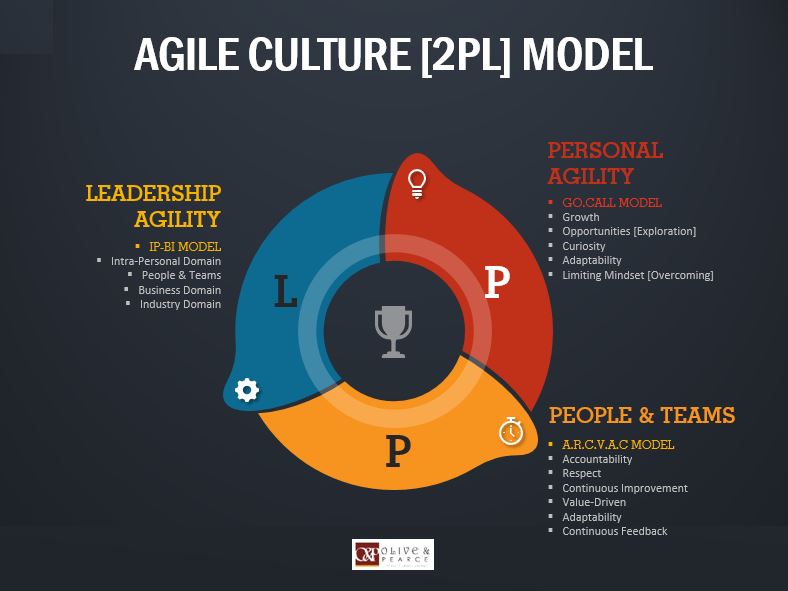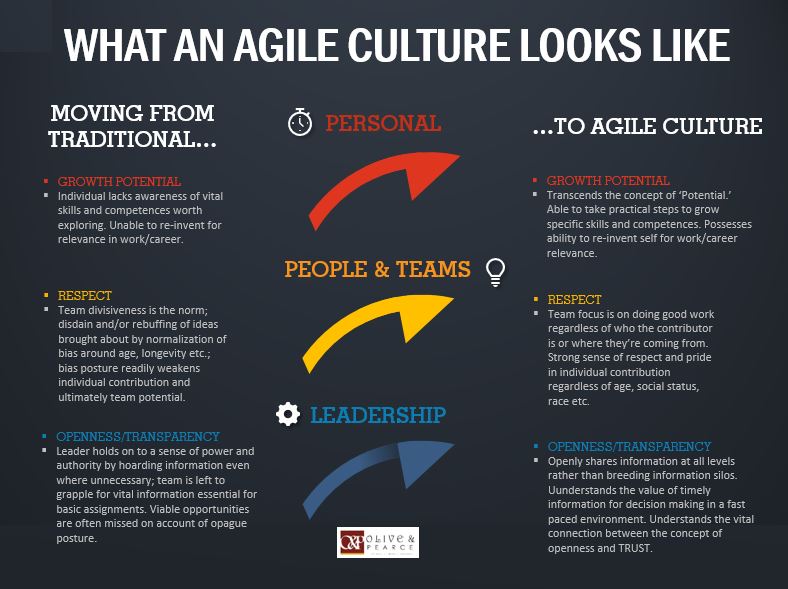
Many organizations are struggling. They seem to be doing all there is to do from a technical standpoint but for some reason they struggle still. They imagine that there is potential to achieve and be more, still they struggle. In a great number of instances, culture is the problem. Behaviors and norms within the organization gets in the way of the most well-articulated corporate strategies. As a consequence, and in most circumstances, really organizations struggle.
The AGILE Culture Framework has been painstakingly designed not only to help organizations unravel the sources of destructive cultures but to also mitigate them – in Agile ways.
NAVIGATING THE TOXIC CULTURE PANDEMIC
Why Toxic Cultures Persist in spite of Incessant Outrages
Times have changed. The mindset [and needs] of an average worker in a knowledge economy is acutely different from that of the industrial era where the focus was on production as opposed to people. The impact of this shift clearly [and unfortunately] is missed by many business leaders and people managers. The pervasive traditional postures to leading organizations are therefore now being resisted by newer and more agile demographics – and here really lies the current challenge with culture and perceived toxicities.
Our methodology to shifting traditional cultures toward more agile approach is akin to a deep work that caters to underlining beliefs that need be challenged and addressed. It is different from the conventional approach of tackling issues on the surface without critical focus on root causes.
Other Reasons why Destructive Cultures Persist

Individuals are more powerful than institutions, systems and structures!

Ignorance of real impact of toxic culture on the bottom-line

Pervasive error with many organization’s narrowed focus of measuring financial outcomes as sole measure of success

Pervasive error of with many organizations ignoring of the concept of reputation capital. In a highly socially connected world where stories spread like wild fire, the blunder of this mindset is evident..
Consequences of Destructive Culture
But what does it really take to change a destructive culture? Too often the answer is disaster. This is a position held not only by Amy C. Edmondson, Novartis Professor of Leadership and Management at Harvard Business School, but clearly also by many discerning minds across the world. Looking around at organizations and governments it’s easy to see why.
The fatal accidents with Boeing 737 Max jets in 2018 and 2019 were a huge wake up call to re-examine corporate culture especially seeing how investigations unraveled the dysfunctional social connections cum human behavioral angles that contributed to the unfortunate disasters and the deaths of 347 people! See Amy’s article here.
In simple terms, the consequences of Destructive Culture are:
-
Employees feel stifled and hold back on contribution.
-
Disconnected and non-collaborative teams hamper productivity; wastage of time and resources is norm.
-
Leadership is toxic. Leaders are ignorant of the impact of their behaviors and leadership approach on their teams. As a consequence, overall organization’s success outcomes are negligible or at best mediocre.
WHY AGILE CULTURE TRANSFORMATION?

An Agile Culture speaks to an environment that fosters responsiveness and adaptability to relentless change; deeply supported by an Agile Mindset across a Business’ Strategy, Structures, Processes, People & Technology.
Clearly, innovative organizations characterized by creativity, flexibility, adaptability, collaboration, respect and the like do not just happen. Unfortunately, impediments to these values are still very endemic in several organizations.
We believe in the efficacy of the principles and values that drive efficient work within Tech environments. We believe also that these are adaptable for non-Tech organizations including legacy organizations. We believe especially that desiring the progress and financial successes largely attributed to Tech firms without understanding and embracing the underlining mindset and behaviors would be akin to running a fool’s errand.
In unravelling where limiting factors subsists within organizations and establishing linkages to the negative impact this has on corporate culture, the journey to Agility that impacts on overall business outcomes becomes truly assured.

CONNECT: [234] 8022307148, 8064203800
Behaviors can Change. Culture can Change.

Going by popular examples in some climes as to how responsive some people can be when in other climes as opposed to how nonchalant and defiant they are within their own countries is proof that contrary to popular belief that habits die hard really isn’t absolutely truth.
Not to imply that organizations need enforce stringent methods to ensure compliance along cultural lines, it is to say rather that with the proper perspectives and benefits well communicated, people can actually rework their mindset, their behavior and ultimately cultural norms.
How we can Help – CULTURE REWORK; One MINDSHIFT at a time

Global challenges and disruptions of technological proportions are clearly compelling new ways of working and engaging with the evolving business terrain. To forge ahead and win, a whole new perspective to responsiveness would be imperative. For most organizations that have functioned in stable environments for decades, it’s easy to see how challenging learning new ways can be yet change is imperative.
Without gain saying, relevant critical changes would go simply beyond sourcing and harnessing the power of technology, it would require organization wide cultural transformation drive underlined by the adopting of new mindset that truly engenders collaboration, flexibility, learning agility [just imagine the speed required for upskilling/reskilling today!], candor without sinister repercussions and psychological safety which underpins progress in no small ways especially for forward looking and growth focused organizations.
OUR APPROACH

DEEP INQUIRY

EXPANSIVECOMMUNICATION

CO-CREATION

REAL TRANSFORMATION
OUR NICHE
Our position as a foremost Agile Culture Transformation firm with wide range of experience working with both SMEs and large organizations is what sets us apart as a valuable partner in making the shifts required to compete in a new but disruptive world.
Also, we strongly believe that beyond the technicalities and technologies, the human angle to fostering creativity and innovation is extremely vital to giving organizations the unique edge. The creating of a conducive environment where such agile postures and mindsets can truly grow and thrive with all stakeholders; leadership, teams and individuals alike will be deeply vital.
So if your organization is one looking to take the leap across to Agile way of thinking and working, then clearly we should be engaging already.
CONNECT: [234] 8022307148, 8064203800
MEET YOUR CULTURE ARCHITECT/COACH

Olufunke ADIO is an Agile Culture Transformation Architect. A Certified Behavioral Consultant and Management Trainer. International Speaker. Alumnus, Institute of Motivational Living OHIO, USA. HR Coach and Faculty Member, Chartered Institute of Personnel Management Nigeria CIPMN. Member, Learning And Development Network International [LDNI], Advocate for Workplace Psychological Safety and Mental Health/Wellness. Agility and Growth Mindset proponent. Creator of the GO-CALL Model for building Personal Agility, UB-GDP Model for achieving a Growth Mindset and IPBI Model for Leadership Agility.
MORE ABOUT OLUFUNKE ADIO
Olufunke Adio is an Agile Culture Transformation Consultant, a Certified Behavioral Consultant, and Certified Management Trainer. An Agile SCRUM Certified [SFC] Professional, she is a sought-after speaker on Personal and Organizational Agility. A vivid representation of what it means to be Agile and with a strong knack for learning new things quickly, she has spoken on several platforms including the Access Agile and Agile20Reflect Festivals where along with Agilists across the world drove conversations around driving the Agile/Agility agenda. The creator of the GO-CALL Model for building Personal Agility, UB-GDP Model for achieving a Growth Mindset and IPBI Model for Leadership Agility, she continues to speak actively at conferences and events sharing her knowledge and perspectives on the critical themes of Agile and Agility and associated relevance for thriving in a disruptive era.
Having started her career in Tech as an E-learning Executive, she has shared extensively on the concept of Digital Agility across platforms like the Nigerian IT Professionals in Canada [NIPCA], EKO Innovation Centre, the Learning and Development Network International [LDNI] amongst several others.
After leading a team of creatives at the same IT firm and becoming a ‘Digital Buff’, she later delved into Human Resources. With a cumulative work experience of about 20 years across, Consulting, Media and Technology sectors, her HR 15 years of cognitive experience in HR has had her function as a Generalist, a Specialist in Learning and Development and Consultant where she effected HR Audits and Structuring projects for Multi-nationals as well as Indigenous organizations in Nigeria, ascertaining the viability of their HR processes and practices against best practices, professional criteria and compliance.
A member of faculty with several Management Consulting Firms along with Chartered Institute of Personnel Management Nigeria [CIPMN], Olufunke Adio was a co-facilitator in the capacity building intervention in the first ever Virtual Staff Upgrade exercise of the Central Bank of Nigeria, CBN in 2020.
With a BSc in Chemistry from the University of Ibadan as well as a PGD in Industrial Relations and Personnel Management also from the same university, Olufunke Adio obtained a Professional Diploma in Human Resource Management and is an Associate of the Chartered Institute of Personnel Management of Nigeria [CIPMN].
She obtained a Certification in Behavioral Analysis from the Institute of Motivational Living and People-Keys Ohio, USA; is a Certified Specialist in Emotional Intelligence as well as in Cognitive Behavioral Therapy; A John Maxwell Certified Trainer and Speaker [ICAN Maxwell Africa]. She also obtained a certification in Customer Service from the ROCKHURST University Continuing Education Center, Inc. USA.
Olufunke Adio is the author of two books and several published works including some eighty plus articles on themes as Learning Agility, Leadership Agility, Growth Mindset, Developing Resilience, Digital Agility, Building Creativity and Innovation Culture, HR, Transformational Leadership, Emotional Intelligence, Productivity and Quality Service Delivery. Some of her papers, ‘SME, HR and the Agile Imperative – A COVID-19 Perspective’ and ‘Driving Agility and Behaviours-The Role of HR and Leadership’ have been featured in CIPM Journal [2021] and CIPM’s People First Magazine [2022] respectively.
A Mental Health Advocate, Olufunke Adio contributes to pushing the Mental Wellness agenda across multiple platforms and actively supports mental health groups, projects and initiatives leading conversations and mindset shifts around Resilience, Productivity and Overall Mental Wellness. She’s also served as mentor with the Inclusivity and employability project of the CIPM and Sight Savers.
Olufunke Adio is the Lead Consultant at Olive and Pearce, a Learning and Agile Culture Transformation company where she assists her clients through, Speaking, Training, Facilitating, Consulting and Coaching.
Target Audience
Middle-Level Employees, HR/Business Leaders, Senior Executives.
All interested individuals looking to make a difference and shift their culture.
Program Approach
ONE-ON-ONE COACHING: BUSINESS & HR LEADERS
GROUP COACHING: BUSINESS & HR LEADERS
Delivery
VIRTUAL
PHYSICAL – PLEASE CALL
Pricing
